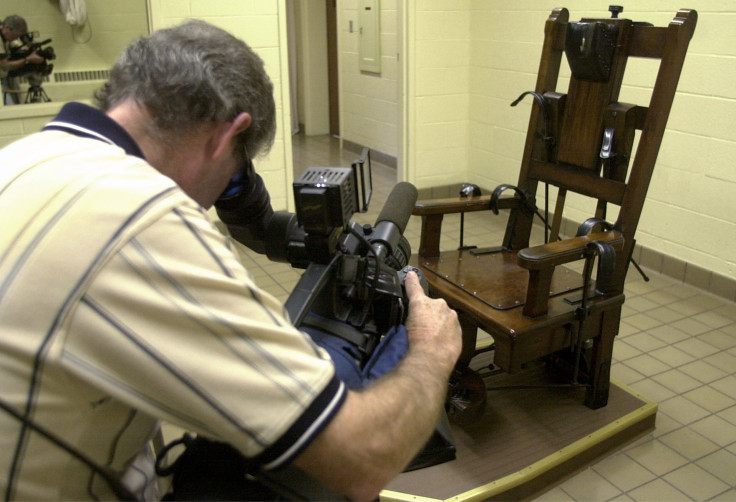Death Penalty In The US: Execution By Gas, Firing Squad, Electric Chair Approved By Mississippi House

Mississippi's House of Representatives approved a bill Wednesday that could expand the state's capital punishment methods to include nitrogen gas, firing squads and the electric chair.
House Bill 308 stated that those three methods may be used if the state's primary technique for performing executions, lethal injection, was "held unconstitutional by a court of competent jurisdiction or is otherwise unavailable." If lethal injection was struck down, nitrogen hypoxia would be the second choice, then a firing squad and, finally, the electric chair. The bill also gave the commissioner of corrections the authority to "adopt and promulgate rules and regulations" in regards to the legislature.
The bill was introduced by House Judiciary B, headed by Rep. Andy Gipson. Gipson said the bill enjoyed popular support from major state figures including Gov. Phil Bryant and Attorney General Jim Hood.
"I have a constituent whose daughter was raped and killed 25 years ago and the person is still awaiting execution," Gipson told the Clarion Ledger. "If we want to have the death penalty, this bill will give us options."
Gipson, who is also a Baptist minister, reportedly defended the morality of capital punishment when questioned by Democratic Rep. Chris Bell. Gipson explained that his Christian faith did not preclude him from supporting the execution of a certain class of inmates.
"I'm a big believer in mercy and grace," Gipson said. "Unfortunately, the death penalty is necessary for those who commit atrocious crimes."
The death penalty exists in 31 states. Lethal injection of a toxic cocktail of chemicals is the primary method in all of them, however some have still authorized other methods. Electrocution is still legal in eight states, while the gas chamber is legal in five. Execution by hanging is approved in three states and firing is still allowed in two states, according to the Death Penalty Information Center.
© Copyright IBTimes 2024. All rights reserved.





















